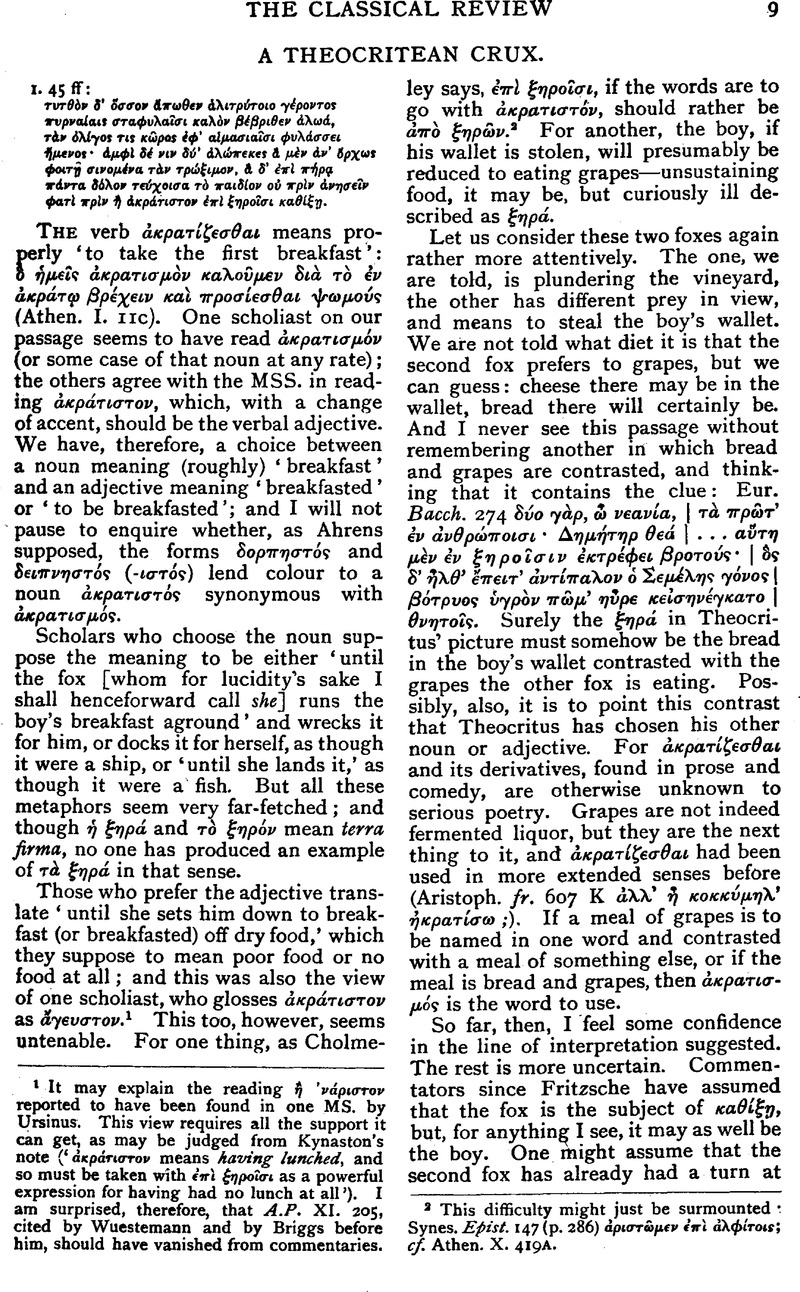No CrossRef data available.
Published online by Cambridge University Press: 27 October 2009

page 9 note 1 It may explain the reading ᾔ νὰρ;ιστον reported to have been found in one MS. by Ursinus. This view requires all the support it can get, as may be judged from Kynaston's note (‘ ἀκρἑτιστον means having lunched, and so must be taken with ἐπὶ ξηρῖσι as a powerful expression for having had nolunch at all’). I am surprised, therefore, that A.P. XI. 205, cited by Wuestemann and by Briggs before him, should have vanished from commentaries.
page 9 note 2 This difficulty might just be surmounted Synes. Epist. 147 (p. 286) ![]() ; cf. Athen. X. 419A.
; cf. Athen. X. 419A.
page 10 note 1 καθίζειν is elsewhere intransitive in Theocritus (1.12, 5.32), an argument, though hardly a decisive one, in favour of the former rendering. The boy, however, plays a purely passive part, and seems for that reason less likely to be the subject.